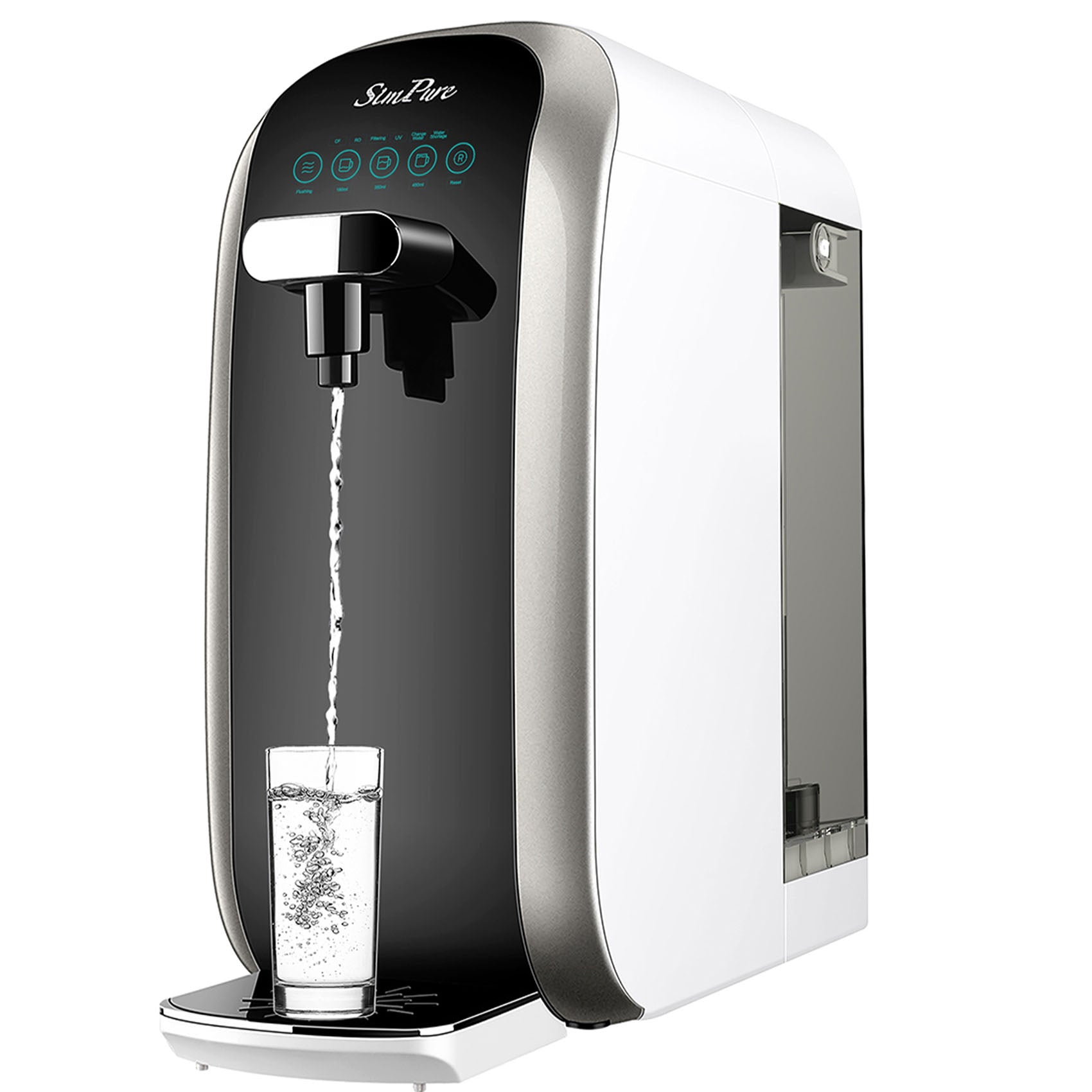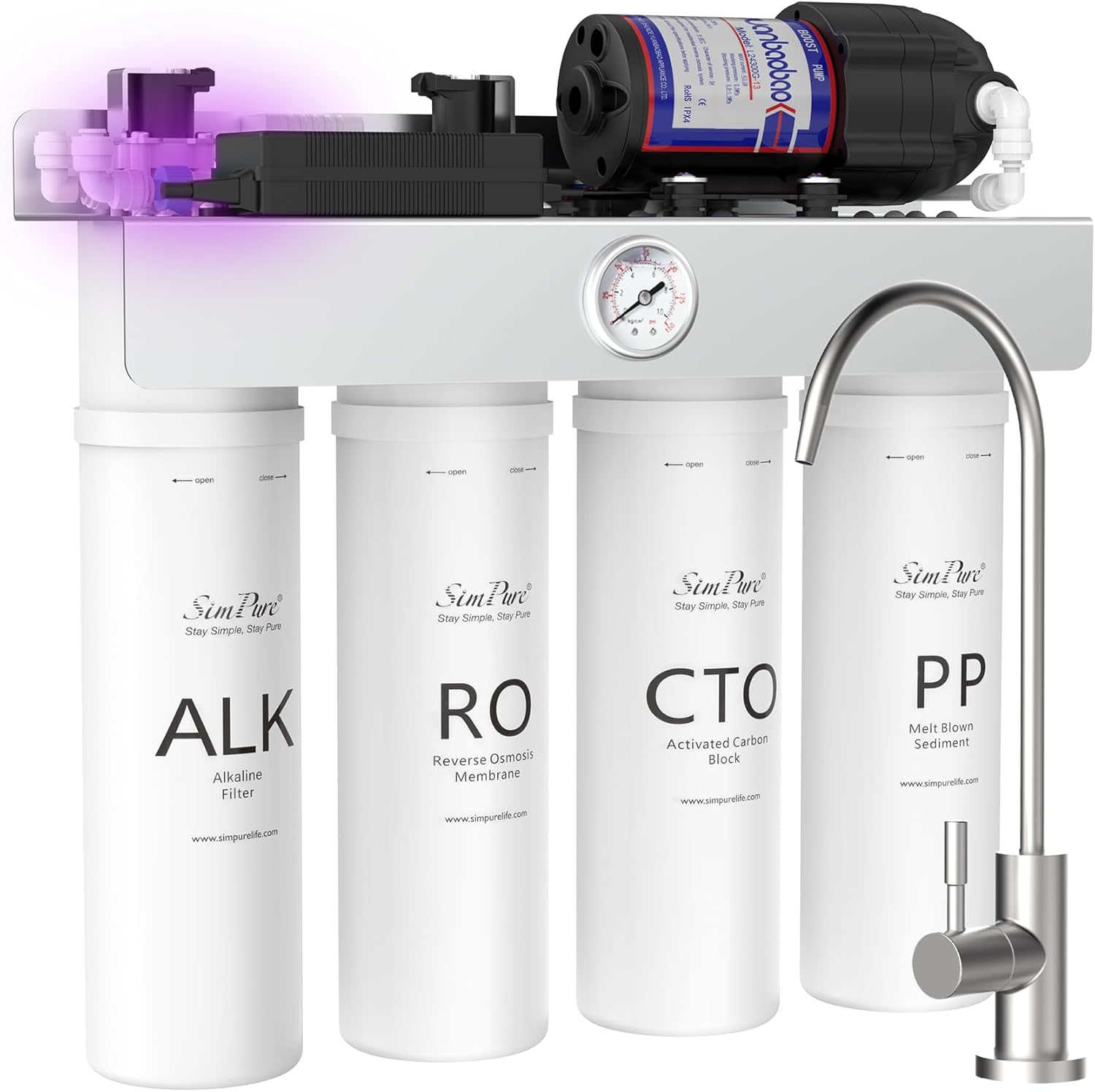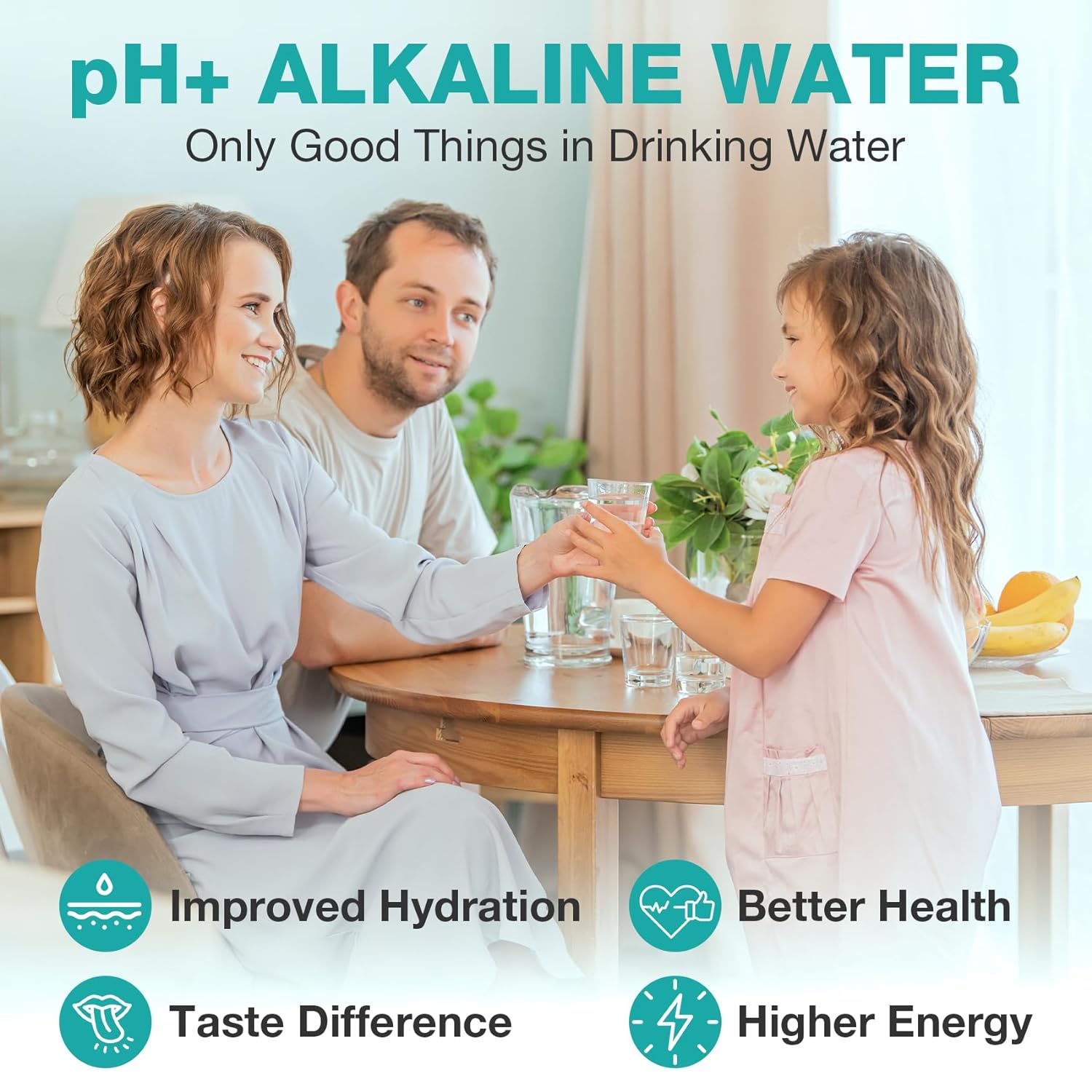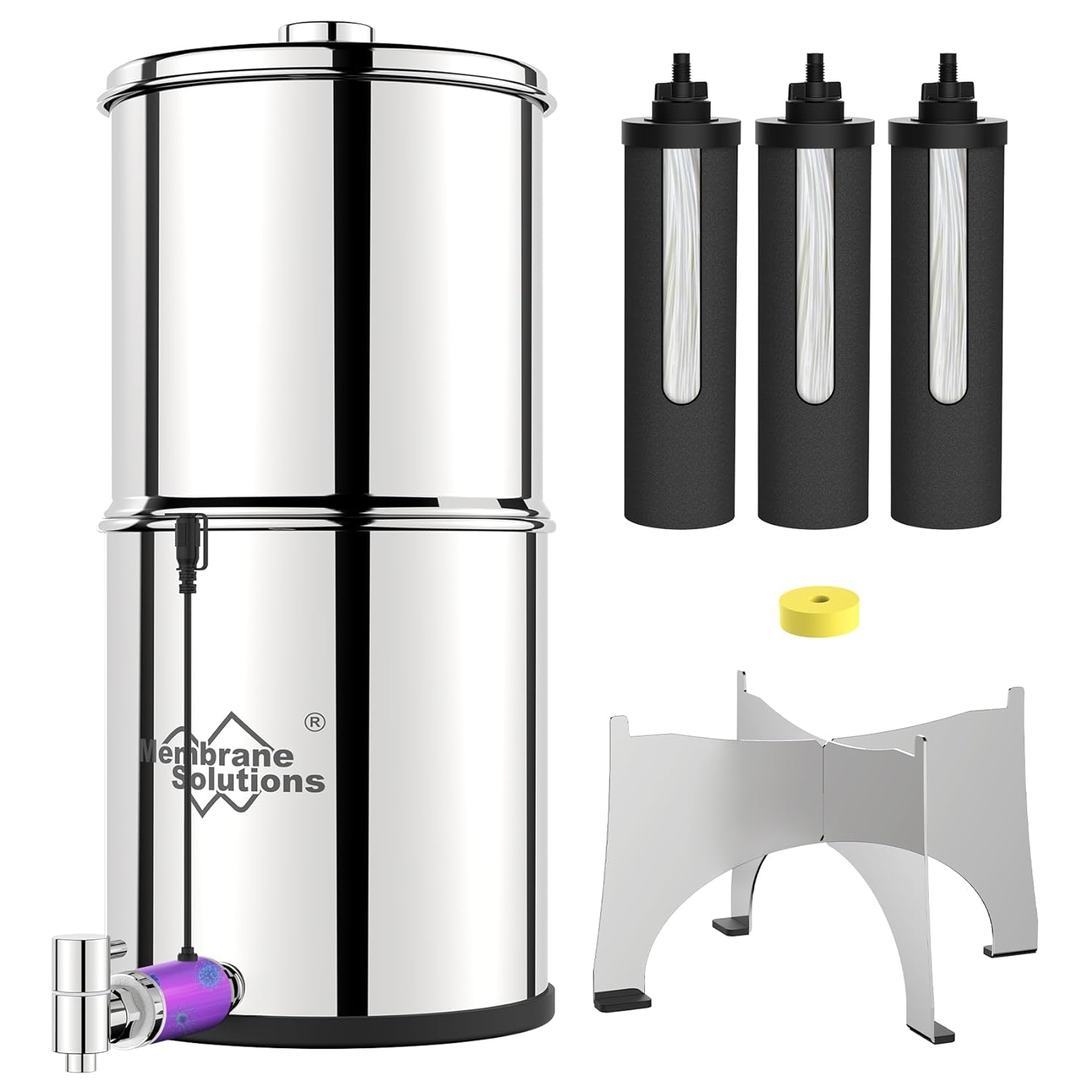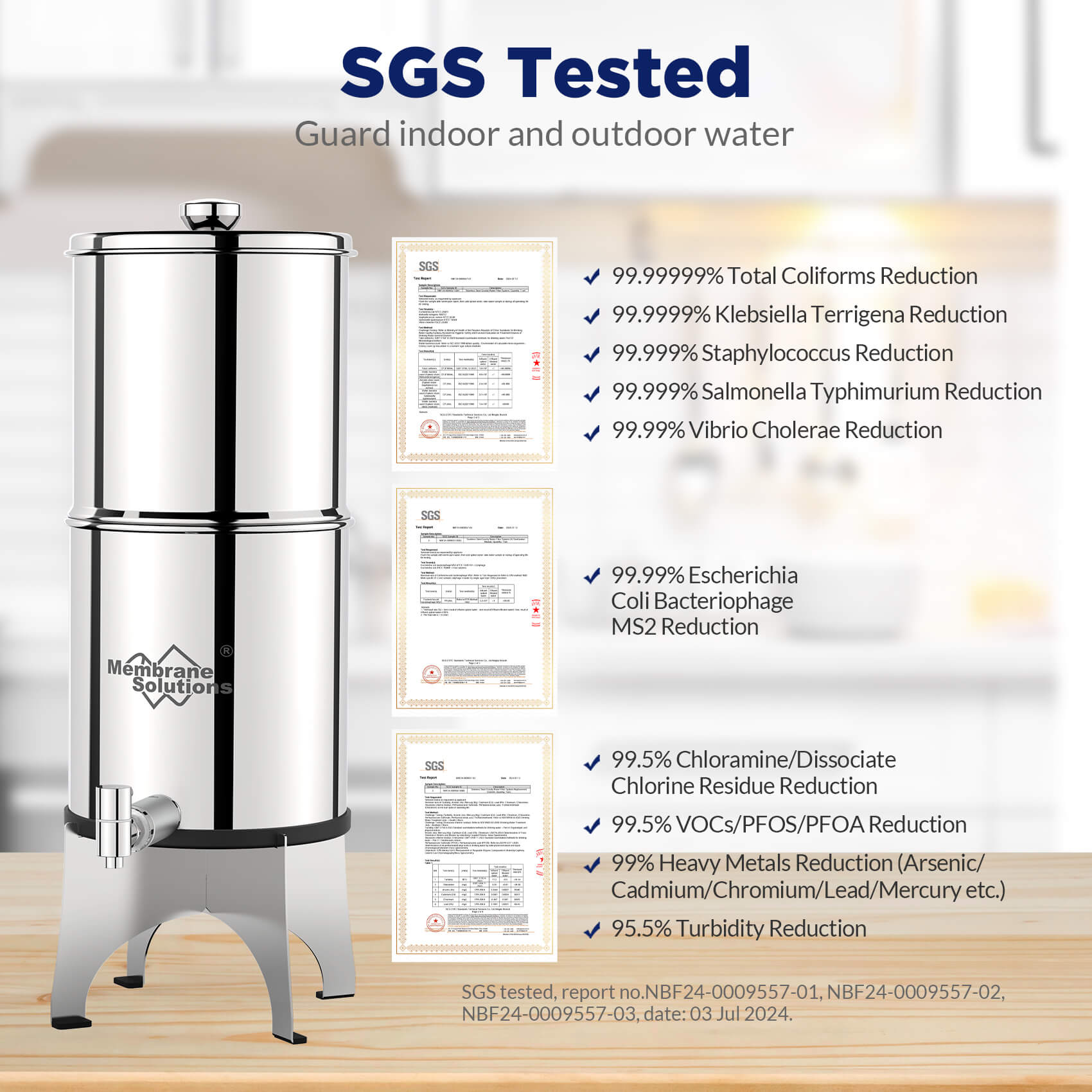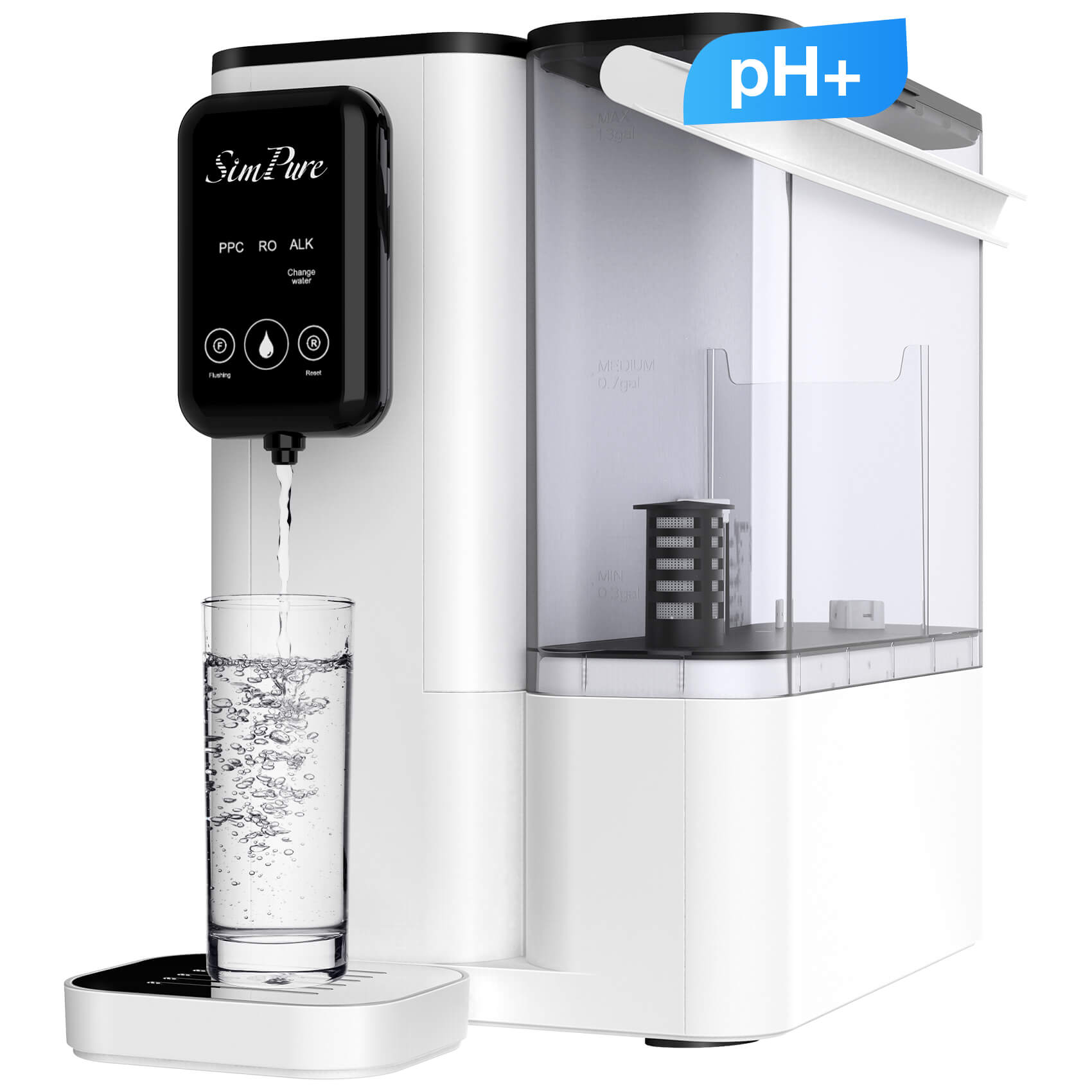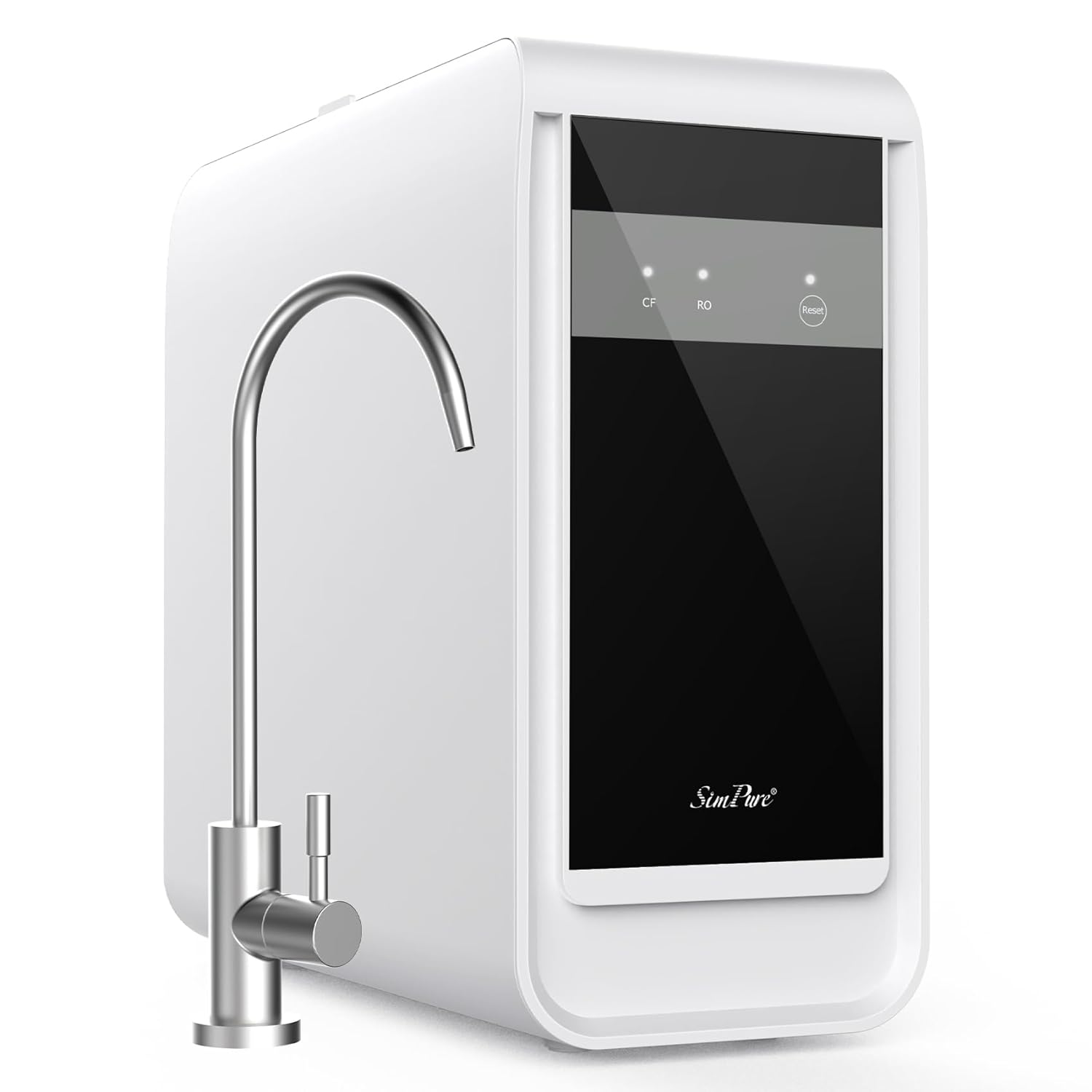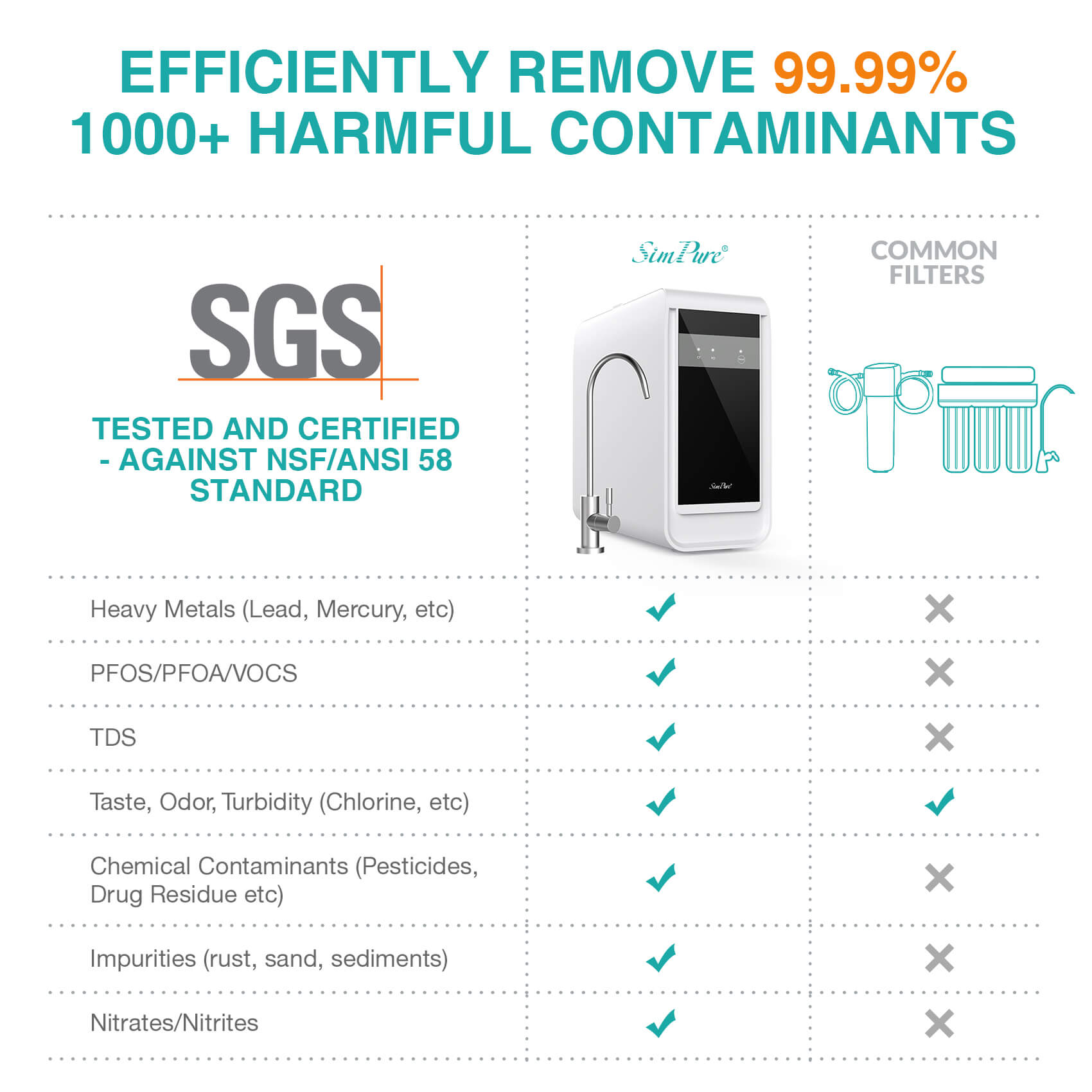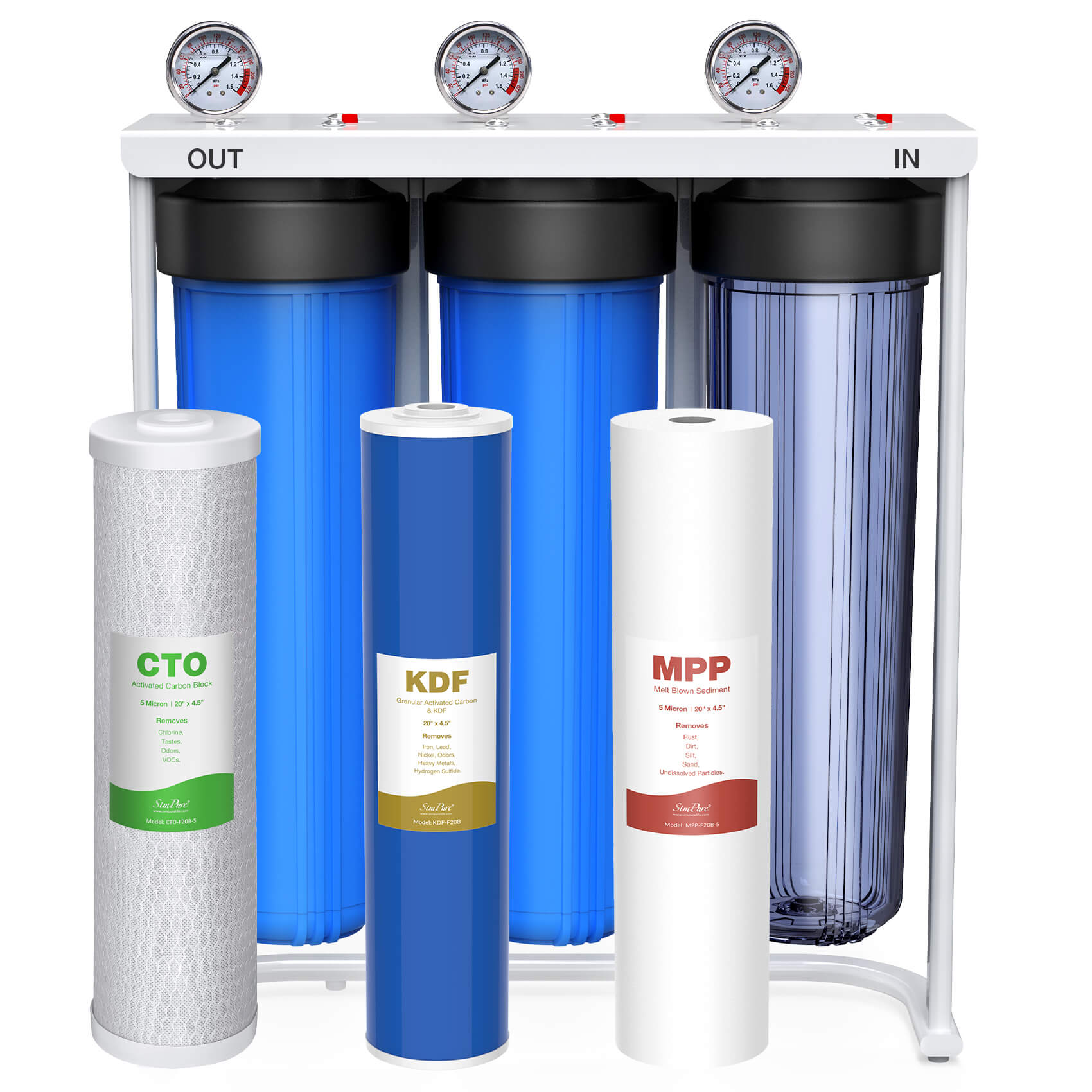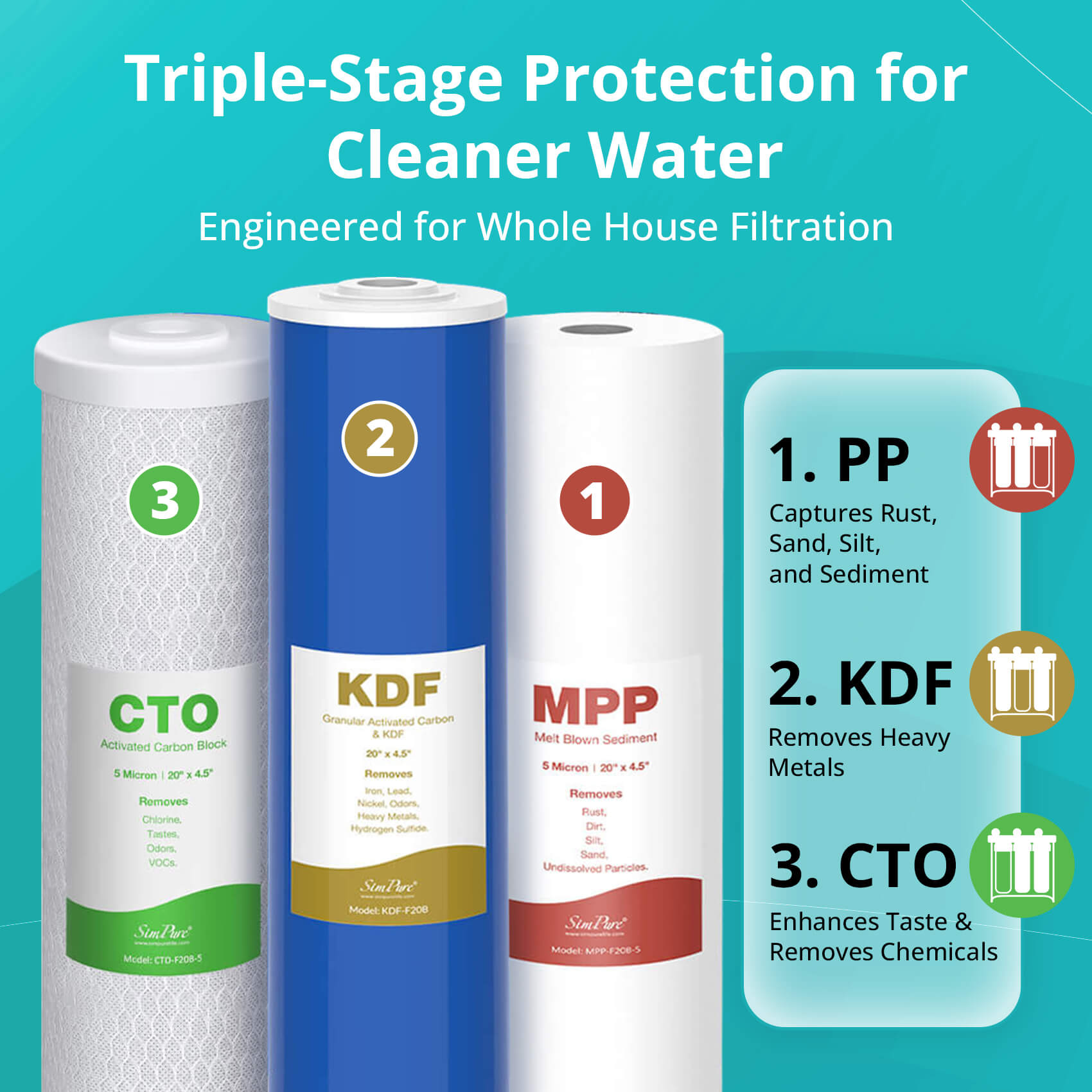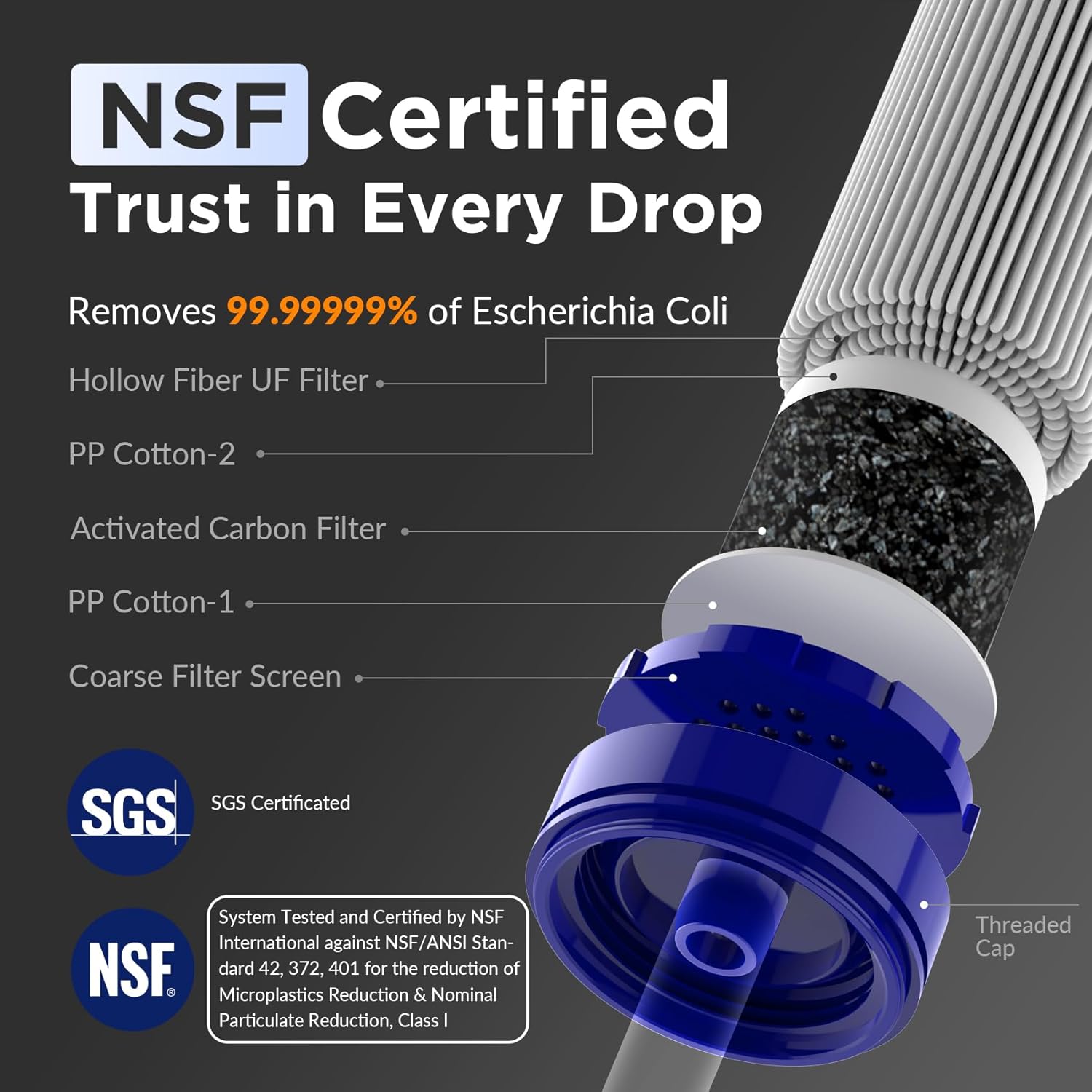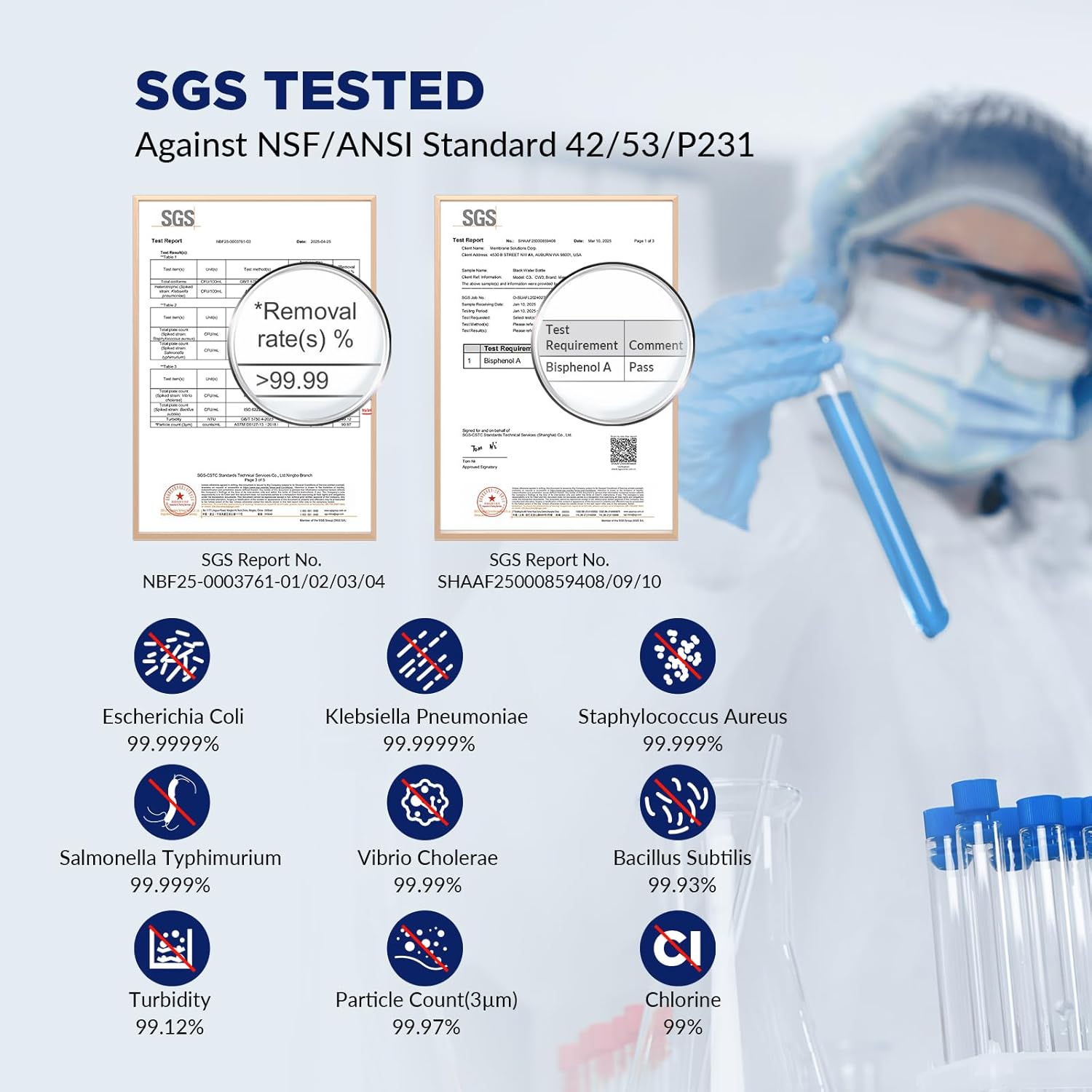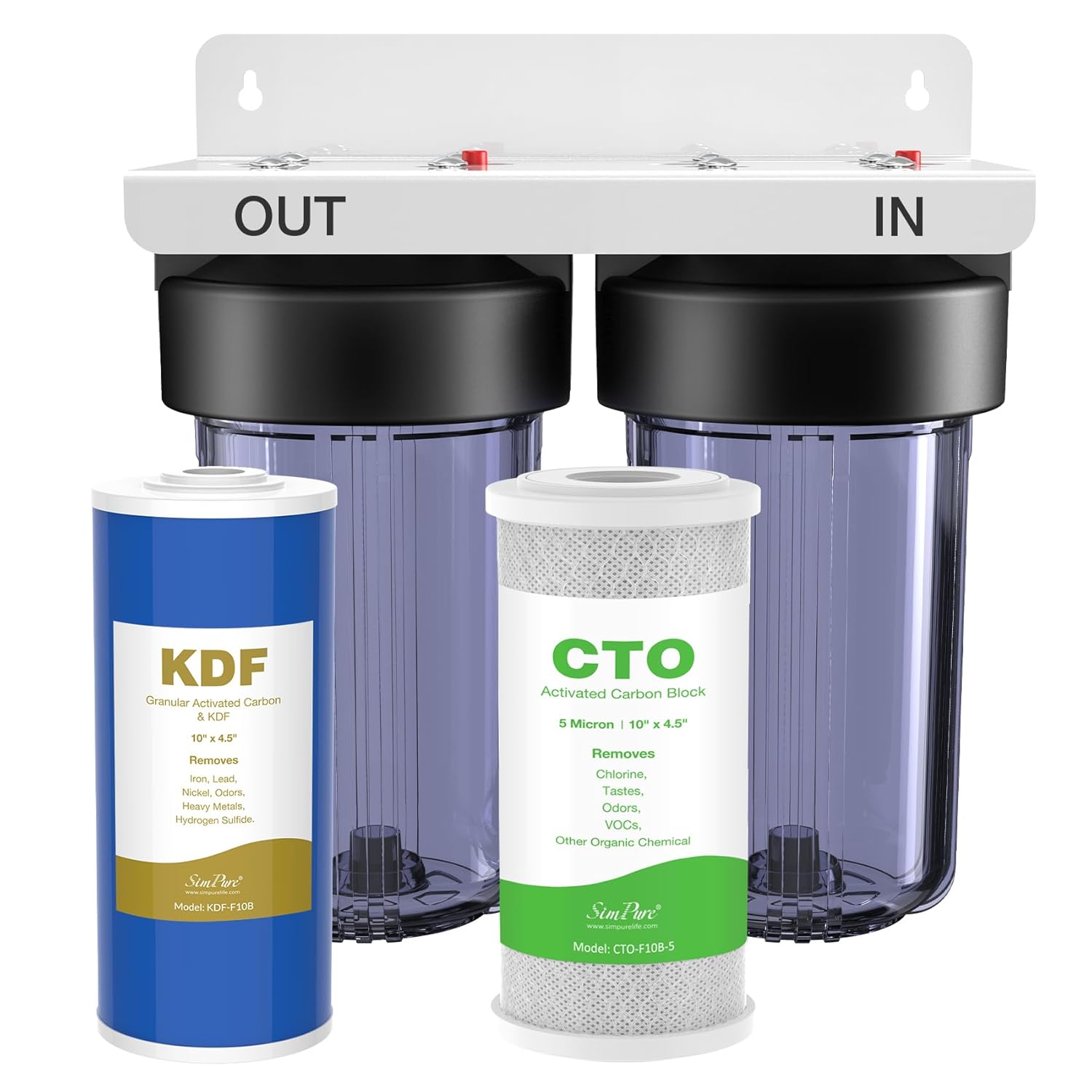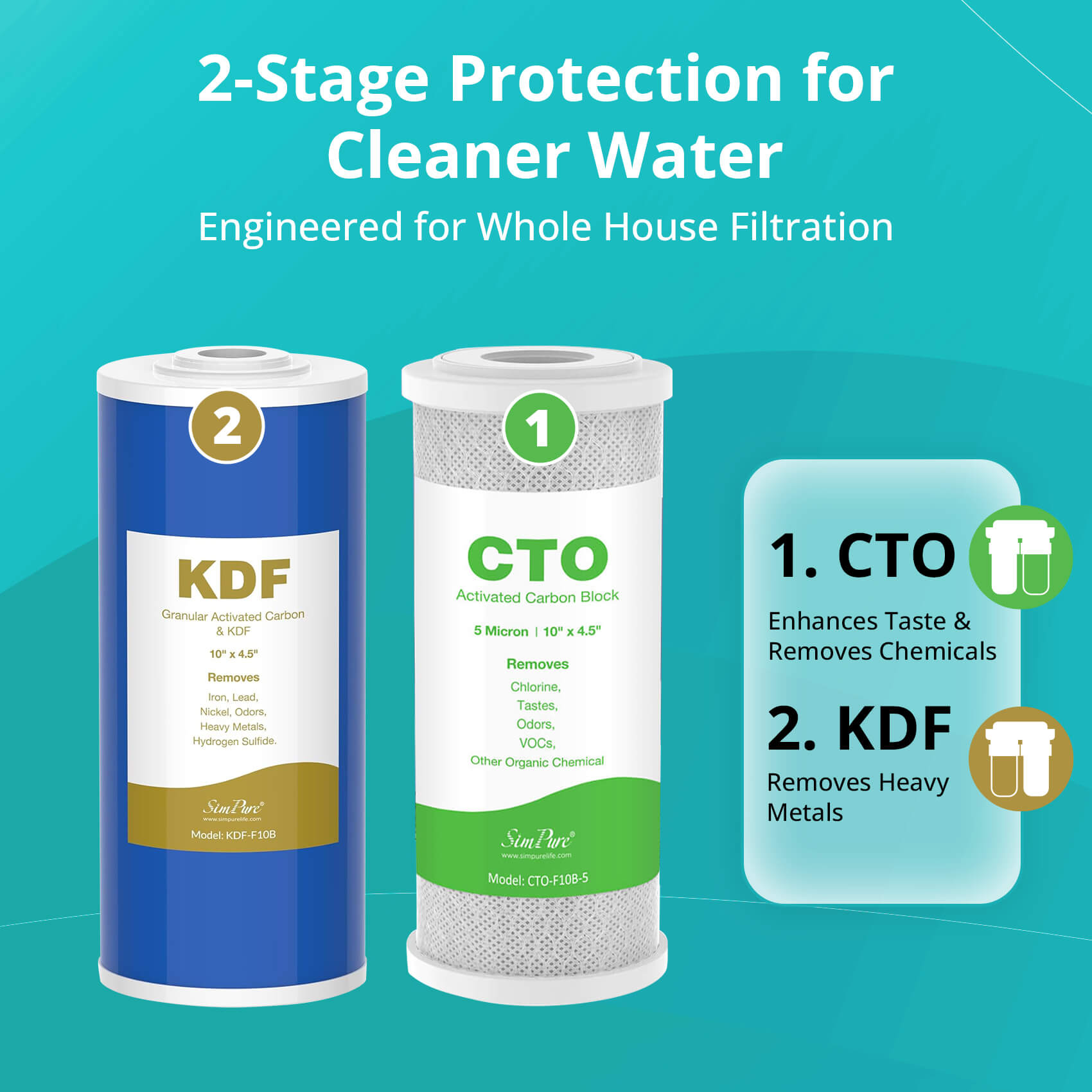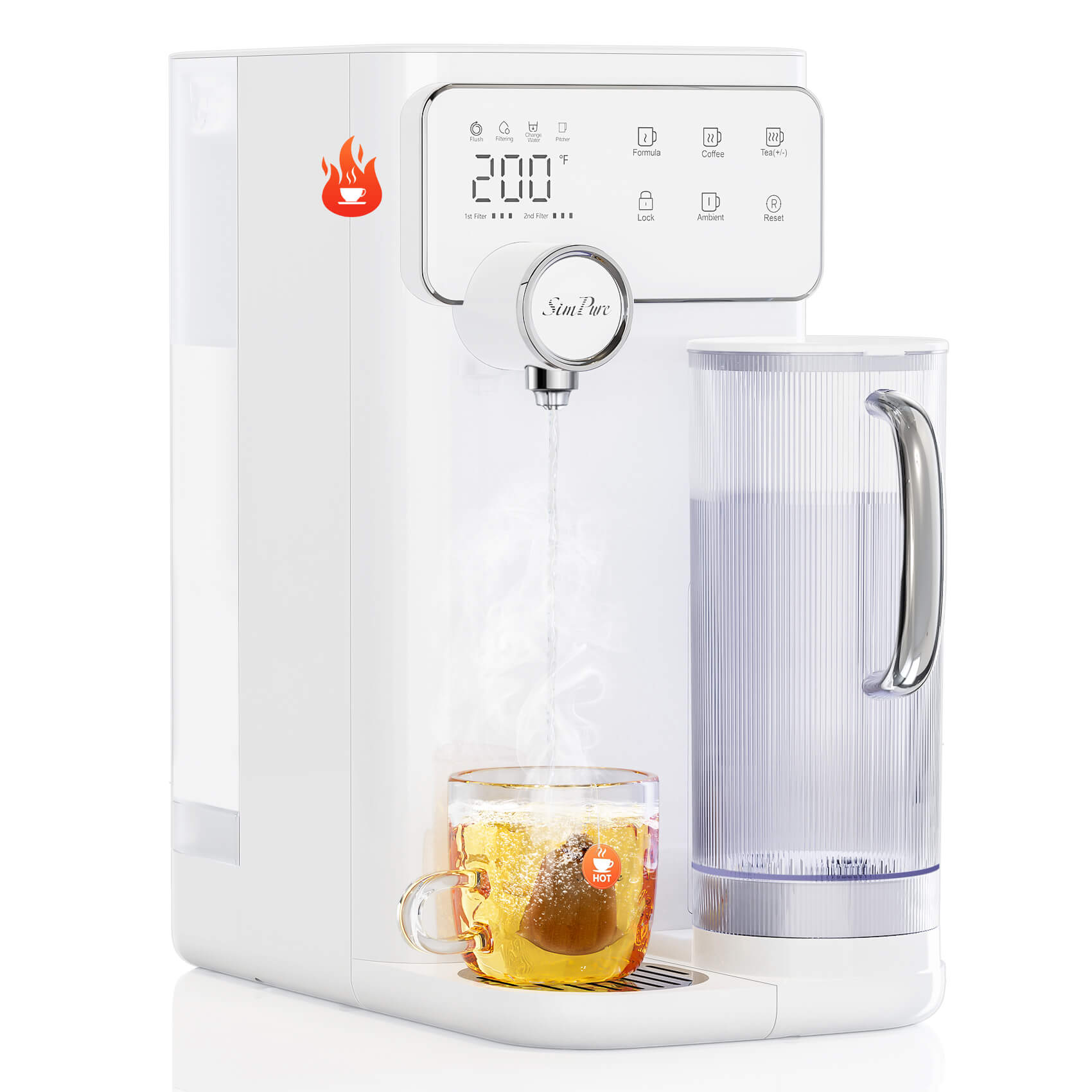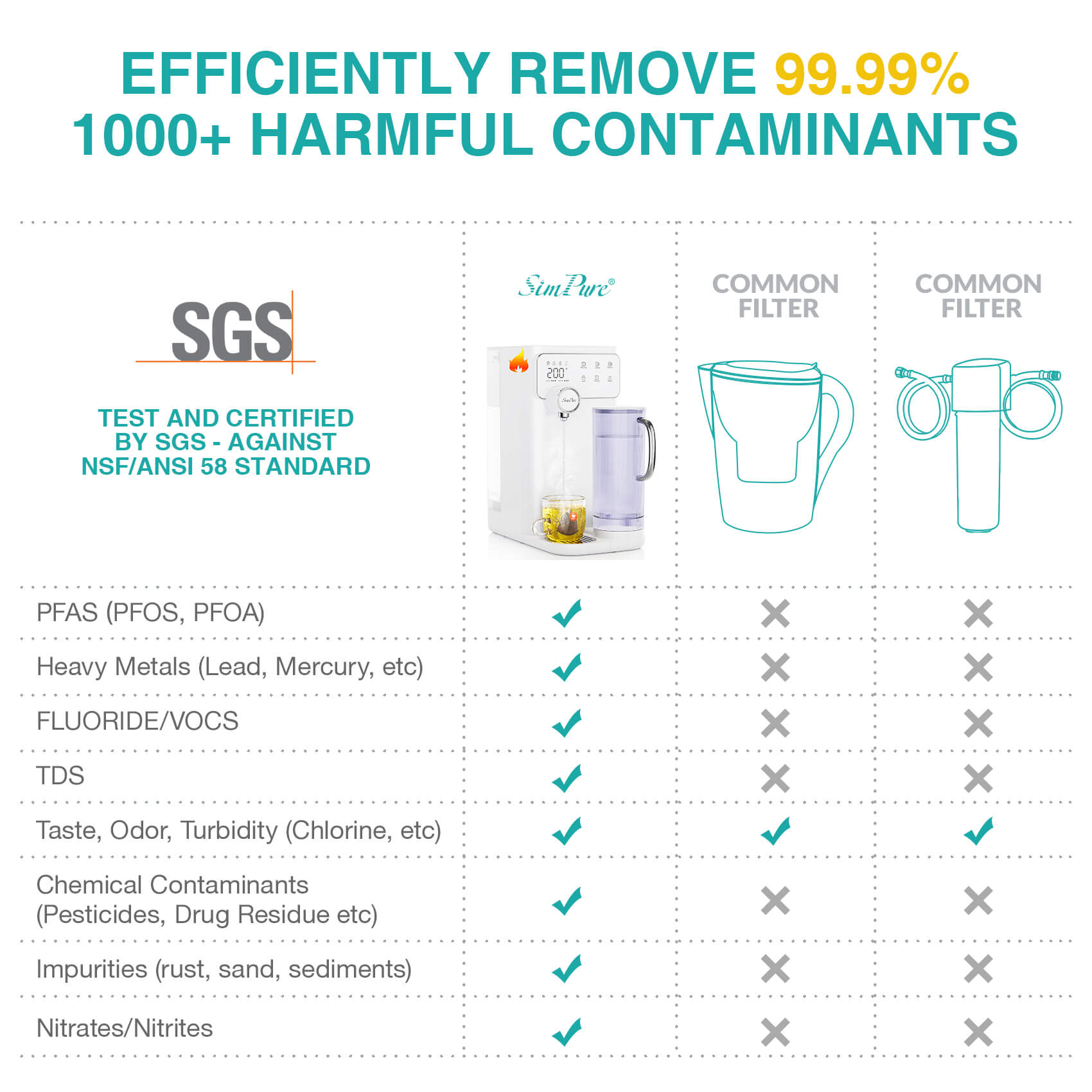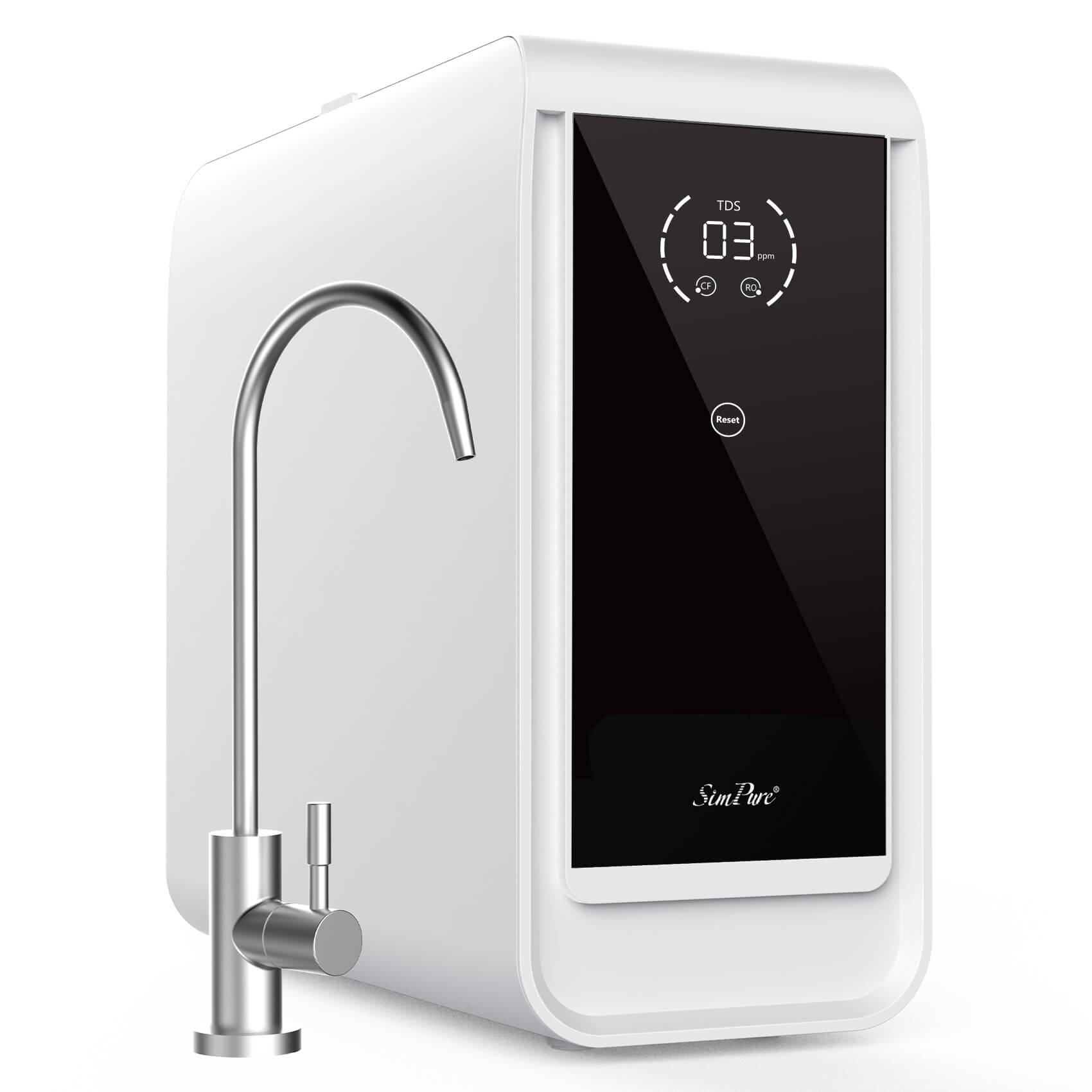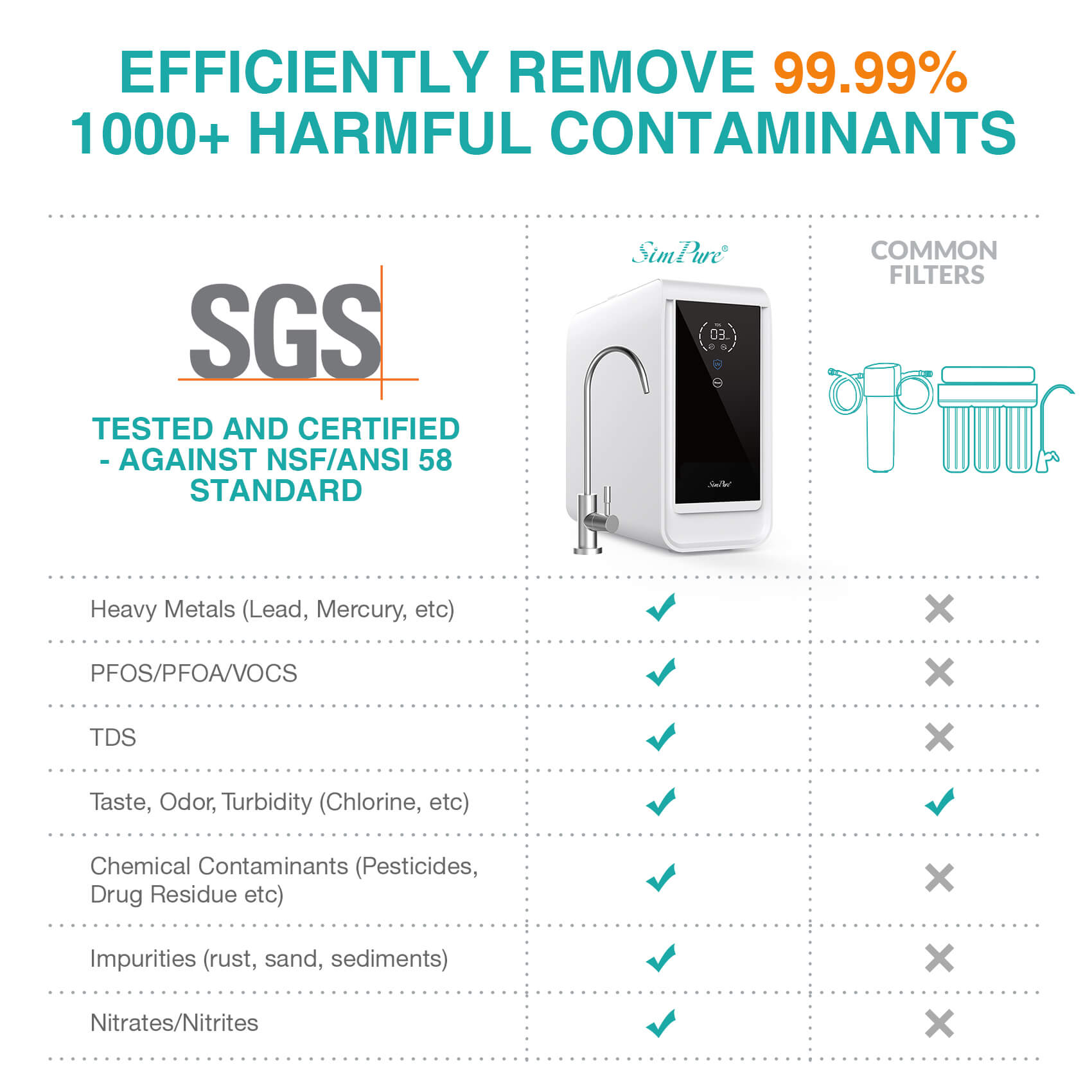Are you trying to find out the acidity or alkalinity of your RO water? Wondering how the pH of reverse osmosis water can affect your hydration routine? Knowing the pH of RO water is critical in ensuring the purity and safety of your drinking water. So, what is the pH of RO water? In this article, we will discuss the pH value of RO water and the factors affecting its value to help you better understand the RO water.
Effects of Different pH Values on the Human Body

The pH level of the human body can have a major impact on physiological processes and overall health. Generally, the pH value is divided into three ranges: acidic, neutral, and alkaline. The human body operates within a tightly regulated pH range, primarily in a slightly alkaline environment. In addition, about the pH value of water, you can click on our blog what should the ph of drinking water be to learn more. The following are the effects of different pH levels on the human body:
1. Acidic pH (less than 7)
When the body's pH becomes too acidic, it disrupts various bodily functions. Acidic pH levels may lead to increased inflammation, decreased immune system function, and impaired nutrient absorption. Additionally, acidic conditions can negatively impact bone health, and muscle function, and lead to conditions like acid reflux and kidney stones.
2. Neutral pH (around 7)
A neutral pH in the body is considered ideal as it promotes optimal function. It helps maintain proper enzyme activity, cellular communication, and overall metabolic processes. When the body maintains a neutral pH, it is better able to fight disease and support overall health.
3. Alkaline pH (above 7)
A mildly alkaline pH has been linked to various health benefits. Adequate alkalinity promotes effective detoxification, optimal cellular function and enhanced immune system response. Alkaline conditions also promote better digestion, increased energy levels, and improved skin health.
What Is the pH of RO Water?
The pH of reverse osmosis (RO) water typically falls within the neutral range, around 7. However, the pH of RO water purified by reverse osmosis system can vary slightly depending on various factors such as the mineral content of the source water, the efficiency of the RO system, and any subsequent treatment or exposure to air. In some cases, RO water may have a slightly acidic or alkaline pH due to these factors, but it generally tends to be close to 7. Here are the specific factors that affect the pH of RO water:
1. pH Value of Source Water
The initial pH of the source water entering the RO system will directly affect the pH of the RO water. If the source water has an acidic pH, the reverse osmosis water may also have a slightly acidic pH. Conversely, if the source water is alkaline, this can result in a higher pH for the RO water.
2. RO Membrane Efficiency
The efficiency and condition of the RO membrane play a crucial role in determining the pH of the RO water. An intact and functioning membrane helps maintain pH balance by effectively removing impurities and regulating pH levels. If the membrane is damaged or worn, it may allow certain ions to pass through which may affect the pH of the RO water.
3. Carbon Dioxide (CO2) Uptake
RO water in contact with air absorbs carbon dioxide (CO2), forming carbonic acid. This causes the pH to drop and the RO water to be slightly acidic. The longer the exposure to air, the more CO2 is absorbed, further affecting the pH.
4. Post-processing
Some RO systems employ a post-treatment step to adjust the pH of the RO water. This may involve using mineral filters or other pH adjustment methods to optimize the final pH of the water. These post-treatment processes can affect the pH of the RO water depending on the specific adjustments implemented.
The pH Value of RO Water Does No Harm to Human Body
The pH of reverse osmosis (RO) water generally has little direct effect on the human body. RO water typically has a pH close to neutral (around 7), which is considered ideal for hydration and overall health. Besides, RO water has several advantages that contribute to improved water quality and potential health benefits. Here are some key benefits of RO water:
1. Remove Impurities and Improve Odor
Reverse osmosis systems are very effective at removing various impurities from water. They remove contaminants such as bacteria, viruses, sediment, chlorine, and heavy metals such as lead and mercury. Plus, reverse osmosis water tends to have a fresher, cleaner, more pleasing taste than water from the tap or other sources.
2. Health and Hydration
Clean, pure water is essential to maintain proper hydration and support overall health. Reverse osmosis water helps ensure that you drink water free of potentially harmful contaminants, promoting health and normal bodily functions.
3. Versatility
RO water can be used in a variety of applications other than drinking, such as cooking, making beverages, and mixing infant formula. Its pure nature makes it ideal for these uses, as it does not introduce unwanted contaminants or affect the taste of prepared foods or beverages.
In summary, the pH of RO water is usually in the neutral range, around 7. However, it is important to note that the pH of RO water can vary depending on factors such as the mineral content of the source water and filtration efficiency. So you'd better get a digital water ph tester to test the specific value of your RO water! What's more, if you prefer RO water with remineralization at a balanced alkaline pH of 7.0 or higher, you can choose to install SimPure T1-400 ALK Under Sink Reverse Osmosis System or SimPure T1-6 Reverse Osmosis Water Filter System with Remineralization.




